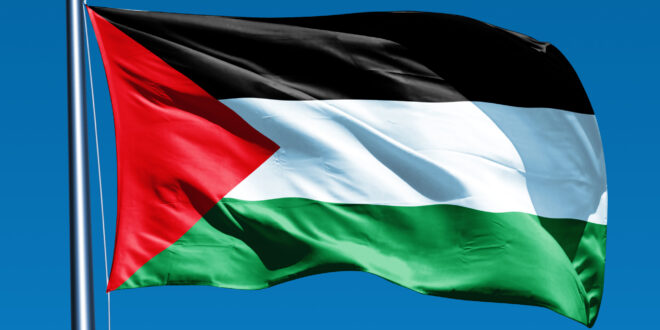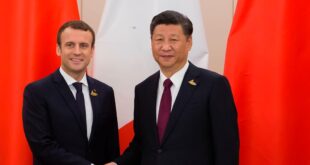Wagdy Abdaziz
In a resounding display of international consensus on one of the world’s most intractable conflicts, the United Nations General Assembly voted overwhelmingly on Friday, September 12, 2025, to endorse the “New York Declaration on the Peaceful Settlement of the Question of Palestine and the Implementation of the Two-State Solution.
” The resolution, which outlines “tangible, time-bound, and irreversible steps” toward establishing an independent Palestinian state alongside Israel, passed with 142 votes in favor, 10 against, and 12 abstentions. This landmark decision, emerging from a high-level international conference co-chaired by France and Saudi Arabia in July, comes just days before a follow-up summit of world leaders on September 22, signaling a renewed global momentum for peace in the Middle East. However, the vote also underscored stark divisions, with the United States and Israel leading the opposition, while Palestinian officials hailed it as a “victory for justice.”
The Declaration: A Roadmap to Peace or Symbolic Gesture?
The seven-page New York Declaration, crafted during the July 28-30 conference at UN headquarters, represents a comprehensive framework for resolving the Israeli-Palestinian conflict that has persisted for nearly eight decades.
Co-signed initially by 17 countries, the Arab League, and the European Union, it envisions a 15-month phased plan for a demilitarized, sovereign Palestinian state based on the 1967 borders, including East Jerusalem as its capital. Key elements include:
Immediate Ceasefire and Humanitarian Measures: Calls for an end to the war in Gaza, the unconditional release of all hostages held by Hamas, and unrestricted access for humanitarian aid to address the ongoing crisis, where famine risks loom large.
Political and Security Reforms: Demands that Hamas relinquish control of Gaza, disarm, and hand over authority to a reformed Palestinian Authority (PA) under President Mahmoud Abbas. It condemns Hamas’s October 7, 2023, attacks on Israeli civilians—the first such explicit UN endorsement—and insists on a unified, democratic Palestinian leadership excluding the group.
International Guarantees: Proposes a temporary UN-mandated stabilization mission to secure Gaza, provide security assurances to both Israel and Palestine, and facilitate economic reconstruction. It reaffirms support for a “just solution” to the Palestinian refugee issue per UN Resolution 194, while transitioning UNRWA services to Palestinian institutions.
Irreversible Steps: Urges member states to recognize Palestine as a full UN member and impose measures against illegal Israeli settlements, citing the International Court of Justice’s July 2024 advisory opinion on the occupation’s illegality.
The declaration’s adoption transforms it into an official UN document, though it lacks binding enforcement. French Ambassador Jérôme Bonnafont described it as “a single roadmap to deliver the two-state solution,” emphasizing collective action across political, humanitarian, economic, legal, and security dimensions. Saudi Arabia’s representative echoed this, calling it a “path toward peace” amid the “historically critical moment” for the region.
This builds on UN General Assembly Resolution 79/81 from December 2024, which authorized the conference, and aligns with broader efforts like the Global Alliance for the Two-State Solution launched by Saudi Arabia in September 2024.
Ahead of the September 22 summit, several nations— including France, the UK, Canada, Malta, and potentially others—have signaled intentions to formally recognize Palestine, viewing it as an “essential step” to viability.
US Reaction: A “Misguided Publicity Stunt” That Rewards Hamas
The United States, a traditional veto power in the UN Security Council, voted against the resolution and issued a sharp rebuke, framing it as counterproductive to genuine diplomacy. In an explanation of vote delivered by Deputy Political Counselor Ting Wu, the US mission stated: “The United States opposes the New York Declaration, as we opposed the High-level International Conference… and the resolution that mandated it. General Assembly action… is yet another misguided and ill-timed publicity stunt that undermines serious diplomatic efforts to end the conflict.”
Washington argued that the text “continues to contain language endorsing the so-called ‘right of return,’ which would mean the demographic death of Israel as a Jewish state.
” It accused the resolution of being “a gift to Hamas,” driven by “domestic politics rather than a serious foreign policy agenda,” and warned it would prolong the war by rewarding the group’s actions.
The US has consistently boycotted such initiatives, including the July conference, prioritizing direct negotiations and Israel’s security concerns over multilateral forums it views as biased.
This stance aligns with the Trump administration’s broader policy, which has emphasized unilateral pressure on Hamas and rejected unilateral Palestinian statehood recognitions.
Critics, including some European allies, see it as isolating the US amid growing global support for Palestine.
Israel’s Firm Rejection: “A Circus Disconnected from Reality”
Israel, which also boycotted the July conference, issued a vehement condemnation hours after the vote.
The Foreign Ministry declared: “Israel categorically rejects the UN General Assembly’s decision this evening,” labeling the body a “political circus disconnected from reality.
” It lambasted the declaration for failing to adequately address Hamas’s role, noting: “In dozens of paragraphs… there is no mention of the fact that Hamas is a terrorist organization,” nor any reference to Hamas’s sole responsibility for prolonging the war by refusing to release hostages and disarm.
Prime Minister Benjamin Netanyahu’s office echoed this, calling the resolution “cynical and hypocritical,” arguing it ignores Israel’s right to self-defense post-October 7 while pressuring it to concede territory. Speaker of the Knesset Amir Ohana had previously quipped during a July address that a Palestinian state could be established “in London or Paris” rather than Israeli land. Israel’s opposition stems from fears that the two-state framework threatens its security and demographic integrity, favoring the status quo of controlled occupation.
Rights groups and analysts warn this rejection risks further isolating Israel, as even allies like Germany back the solution.
Supporters and Opponents: A Global Divide
The vote highlighted a clear geopolitical fault line, with broad support from the Global South, Europe, and Arab states contrasting sharp opposition from Israel’s closest allies.
Supporting Countries (142 in Favor): Led by co-chairs France and Saudi Arabia, the resolution garnered endorsements from a diverse coalition. Key backers included:
European Nations: Germany (despite withholding immediate recognition), the UK, Spain, Ireland, Norway, and the EU as a bloc, viewing it as essential for regional stability.
Arab and Muslim-Majority States: Saudi Arabia, Egypt, Jordan, UAE, Qatar, Turkey, and the entire Arab League, which for the first time collectively condemned October 7 and urged Hamas’s disarmament.
Global South Powerhouses: China, India (which voted yes alongside 141 others), Brazil, Indonesia, South Africa, and Russia, emphasizing decolonization and self-determination.
Others: Australia, Canada (with conditions), Japan, and South Korea supported it symbolically, while the Gulf Cooperation Council (GCC) welcomed it as a step toward “just peace.”
These nations praised the declaration’s balance—condemning both Hamas’s attacks and Israel’s Gaza operations—while stressing urgency amid Gaza’s humanitarian catastrophe.
Opposing Countries (10 Against): A small but vocal bloc, dominated by Israel’s allies:
United States, Israel (as expected).
Hungary, Argentina (under right-wing governments aligned with Netanyahu).
A handful of Pacific island nations and others with pro-Israel stances, totaling just 10.
Abstentions (12): Included Italy, Austria, and several Eastern European states wary of alienating Israel without immediate recognitions.
On X (formerly Twitter), reactions ranged from Palestinian Mission’s triumphant “The world chooses peace. Palestine chooses peace” to Israeli spokesman’s counter that it enables conquest.
UN Secretary-General António Guterres urged swift implementation, warning the two-state solution is “on life support.”
Palestinian Perspective: “A Victory for Justice and Peace”
Palestinian officials celebrated the vote as a “historic milestone,” with the PA’s Ministry of Foreign Affairs stating it “affirms Palestine’s right to statehood and ends decades of injustice.
” Permanent Observer Riyad Mansour declared: “This declaration stems from the work… in New York, laying out a single roadmap.
” President Abbas, who in June condemned Hamas and endorsed disarmament, thanked supporters for making the text an “official UN document.
” The PA urged global pressure on Israel to halt aggression, release prisoners, and end displacement, viewing the resolution as bolstering its legitimacy against Hamas.
However, challenges remain: unifying governance, rebuilding Gaza, and securing recognitions amid economic woes.
Looking Ahead: From Words to Action
As the September 22 summit looms, the declaration’s success hinges on enforcement—potentially through UN Security
Council referrals or sanctions. Analysts warn of fragility: Israel’s settlement expansions and US veto threats could derail progress. Yet, with 142 nations aligned, it marks a seismic shift, isolating opponents and reviving hope for two states living in peace. The international community now faces a test: will this be another archived resolution, or the catalyst for enduring peace? This report will track developments closely.
 موقع وجه أفريقيا موقع وجه أفريقيا هو موقع مهتم بمتابعة التطورات في القارة الأفريقية
موقع وجه أفريقيا موقع وجه أفريقيا هو موقع مهتم بمتابعة التطورات في القارة الأفريقية



